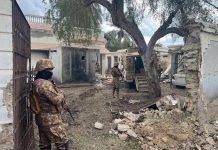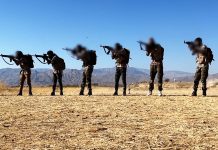In a recent development, 160 Baloch student protestors, initially detained in Islamabad, have been released. However, concern mounts as several others, notably including Zaheer Baloch, remain missing following the protests.
The arrests occurred as these students gathered to rally against the federal government and Islamabad Police’s refusal to allow participants of the “Long March Against Baloch Genocide” to enter Islamabad. The Islamabad police dispersed the peaceful protests using tear gas, batons, and water cannons, resulting in the arrest of hundreds of protestors. Although 160 have been freed, over a dozen, including Zaheer Baloch, a PhD candidate at Comsats University, remain unaccounted for.
Baloch Yakjehti Committee reported that more than a hundred protestors are still in police custody.
The severe crackdown in Islamabad has drawn widespread condemnation from national and international activists and human rights groups. Organizations such as the Human Rights Commission of Pakistan and Amnesty International have decried the actions, urging the immediate release of the detained protestors. Well-known activists like Malala Yousafzai and Greta Thunberg have voiced support for the “Long March Against Baloch Genocide,” demanding justice for the protestors. Furthermore, both the European Union and the Embassy of Norway have condemned the arrests of peaceful protestors.
The reverberations of the violent crackdown in Islamabad have rippled across Balochistan. Protest waves surged in Turbat, Quetta, Khuzdar, Dalbandin, Gwadar, and other areas over the past week. Additionally, the Baloch Yakjehti Committee orchestrated robust demonstrations in Karachi, Lahore, and Bahawalpur against the crackdown on Baloch protestors.






























